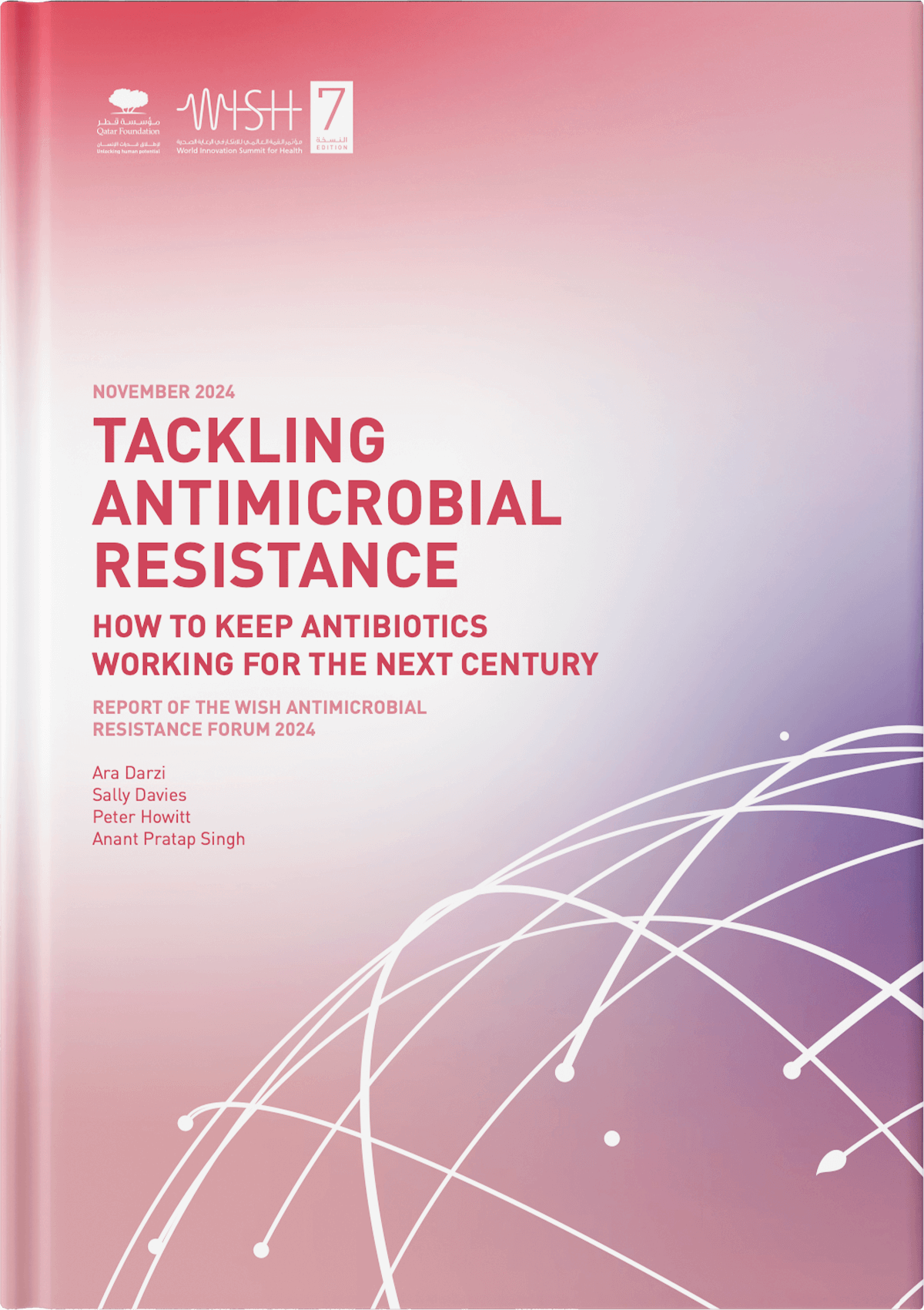Tackling Antimicrobial Resistance: How to Keep Antibiotics Working for the Next Century

The first WISH report on tackling antimicrobial resistance (AMR) was published more than a decade ago. Section 1 of this report reviews progress on recommended actions in the five areas identified by the 2013 report.
Section 2 of the report considers opportunities for action in three areas, illustrated by case studies from around the world.
Section 3 of the report takes stock of what has emerged from the United Nations (UN) General Assembly High-Level Meeting on tackling AMR. It welcomes the Political Declaration, whilst recognizing that action needs to go further and faster. To that end it makes six recommendations.
Recommendation 1
International organizations should put into action the 2024 UN AMR high-level meeting recommendation to establish an independent body to advise on the evidence and inform action. This panel will identify gaps in the current evidence on AMR, assess emerging and future risks of AMR, and inform cost-effective options for mitigating AMR, including global targets.
Recommendation 2
Countries and international bodies should engage their citizens in tackling AMR, with clear plans to do so by 2028.
Recommendation 3
Governments should give more priority to water and sanitation in addressing AMR. This includes increasing investment in water, sanitation and hygiene (WASH) to reduce infections and environmental microbe exposure, and the development of national programs to surveil antibiotic residues, resistance genes and resistant pathogens in the water supply and factory effluent.
Recommendation 4
By 2027, high-income countries should commit to only prescribing antibiotics (with a few defined exceptions) when need is confirmed by a diagnostic test. Low- and middle-income countries should achieve this by 2030.
Recommendation 5
By 2026, all high-income countries should have introduced pull incentives for the development of new antimicrobials, to deliver on global antibiotic priorities.
Recommendation 6
Global health organizations should use the forthcoming centenary of the discovery of penicillin (2028) to accelerate progress on the AMR agenda.
We have four years before the centenary of the discovery of penicillin (2028) to accelerate progress on tackling AMR, so that we can keep antibiotics working for the next 100 years.